
“Things Went South Quickly”: Guy Gets Back At Ex-Bosses, Teaches Them To Never Mess With A Lawyer
Lawyers are the one profession you never want to mess with. Especially if you think you can take advantage of them in the workplace. One lawyer plotted an impressive revenge plan on his not-so-competent former colleagues and shared it on Reddit.
The user recently told a story of how he was mistreated at a multinational software company, and how he got back at the management using his experience and knowledge of the law. He proved how important it is to be on your toes when you start a new job, and demonstrated how a law degree can help you deal with toxic people in the workplace.
Trying to trick a lawyer is never a smart idea, especially if that lawyer works for you
Image credits: Sora Shimazaki (not the actual photo)
One man wasn’t afraid to take legal action against the management after they lied, mistreated, and overworked him
Image credits: cottonbro studio (not the actual photo)
Image credits: August de Richelieu (not the actual photo)
Image credits: RDNE Stock project (not the actual photo)
Image credits: Andrea Piacquadio (not the actual photo)
Image credits: Nicola Barts (not the actual photo)
Image credits: Italo Melo (not the actual photo)
Image credits: UOAOldie
What is the relieving letter the OP keeps referring to in his post and comments?
The redditor who posted this story, as he mentions himself in the post, works in India. An employer is legally required to issue a relieving letter to a leaving employee there, as was decided in the Industrial Employment (Standing Orders) Act in 1946. However, this is required only of full-time employees.
So what exactly is a relieving letter? It’s a formal document issued by the employer to an employee after they resign and their tenure at the company has ended. Sometimes it can also be referred to as a relieving certificate.
These documents provide details of the employee’s time at the company, what were their duties, and what tasks the employee carried out. A relieving letter can often be proof of a good work history and reliability.
Axpert Jobs CEO Ashok Reddy writes, “Wherever you go, every company asks you for the documented proof of the duration you spent in your previous company. Without that proof, no company is willing to take you seriously.”
In the US, where such a letter is not mandatory, it’s only advised to request a relieving letter from your employer. The Indian employment agency Crescendo Global clarifies that “while not legally required in all countries, relieving letters are a common practice in many industries and are considered an important part of an employee’s work record.”
Proponents of making the letter obligatory in other countries say that it helps the next employer when they can see previous employment references. They also “protect them from potential legal issues by clearly stating the reason for an employee’s departure and any outstanding obligations.”
However, a relieving letter can be used against the employee when quitting a job, and the OP’s story is a clear example of that. An employer can deny an employee the letter if they’re not satisfied with their work at the company. It can also be an attempt from toxic management to control the employee.
If an employee has handed in their resignation and completed all their work-related tasks, an employer can’t refuse a request to issue a relieving certificate. Refusing to provide the employee with a relieving letter can be considered a violation of labor laws, and the employee could take legal action against the company.
Here’s some advice on how to deal with jerks in the workplace from a work relationship expert
Bored Pandapreviously spoke with Louise Carnachan, the author of Work Jerks: How to Cope with Difficult Bosses and Colleagues about how to deal with difficult coworkers and management. “The narcissistic leader is probably the most toxic because everything is about their gain,” Louise told us then.
“They’ll throw you under the bus if they need to divert attention away from their misdeeds. A strategy with them is to stay friendly but not get caught up in their inner circle. It may not feel as good to stay out of the chosen group but it’s a lot safer.”
Louise also gave some advice on how to deal with supervisors who tend to micromanage their employees. “Assuming you know how to do the job, ask what it is you need to demonstrate for them to trust you’ve got this,” Louise said.
“If it’s a habit they are unaware of (and you have a decent relationship with the boss), ask if you can give them a heads up when they forget and intrude on your work.”
Unfortunately, if a manager is simply irritating you and not doing anything illegal, it may be hard to take action. “There’s a difference between a manager’s poor communication style and bullying or harassing behavior,” Louise explained. “The former is highly irritating but the latter is illegal.”
“Report harassment through whatever channels are available to employees (union, boss’s boss, human resources, EEOC, whistleblower hotline, ombuds office).”
“Worrying about retaliation keeps many from reporting but if there are enough of you, you can form a coalition,” Louise advised. “If the situation is frequently causing you sleepless nights, you may want to find other employment as soon as you can,” Louise added.
The author of the post answered some burning questions that other Redditors had
Commenters were on the side of the author: “The old furniture” got what was coming to them
Well, I read the whole thing. Some things I had to read twice and I still don't think I understand what went on.
Load More Replies...You should generally never mess with the lawyers, there's a reason why even the cops have respect of them
The author needs to learn how to self-edit This could have been a very interesting 3 paragraph story ..
Well, I read the whole thing. Some things I had to read twice and I still don't think I understand what went on.
Load More Replies...You should generally never mess with the lawyers, there's a reason why even the cops have respect of them
The author needs to learn how to self-edit This could have been a very interesting 3 paragraph story ..

 Dark Mode
Dark Mode 

 No fees, cancel anytime
No fees, cancel anytime 







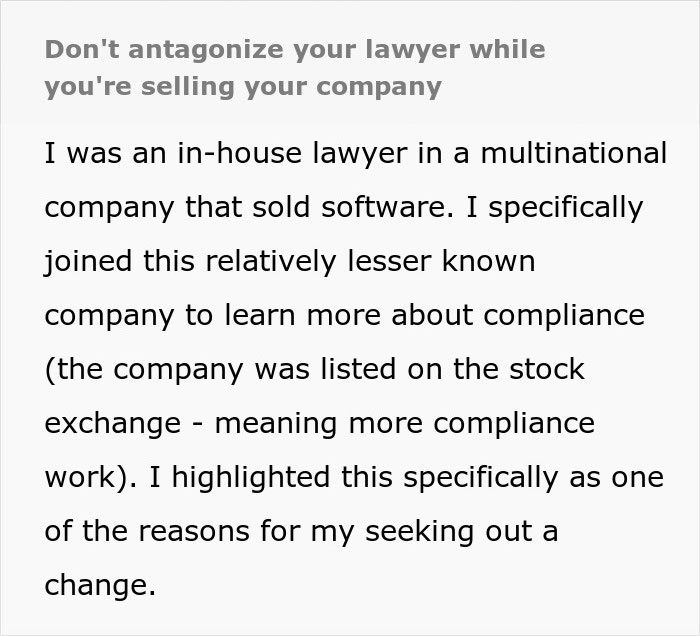
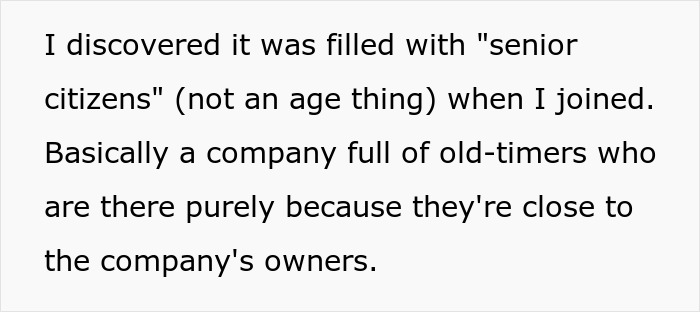
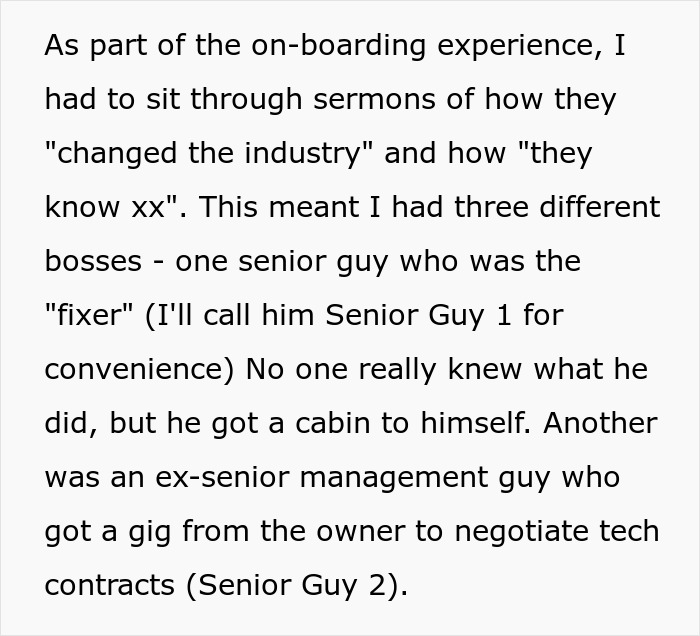
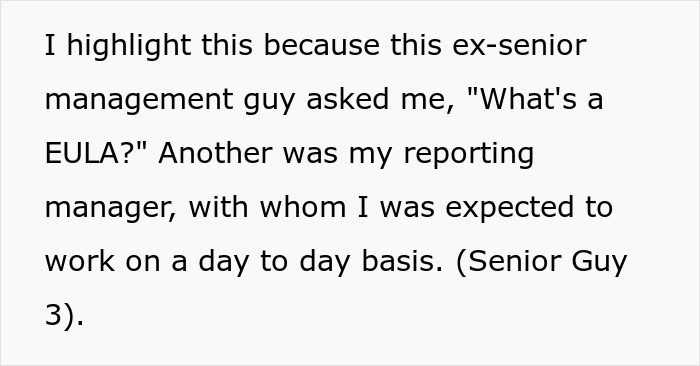

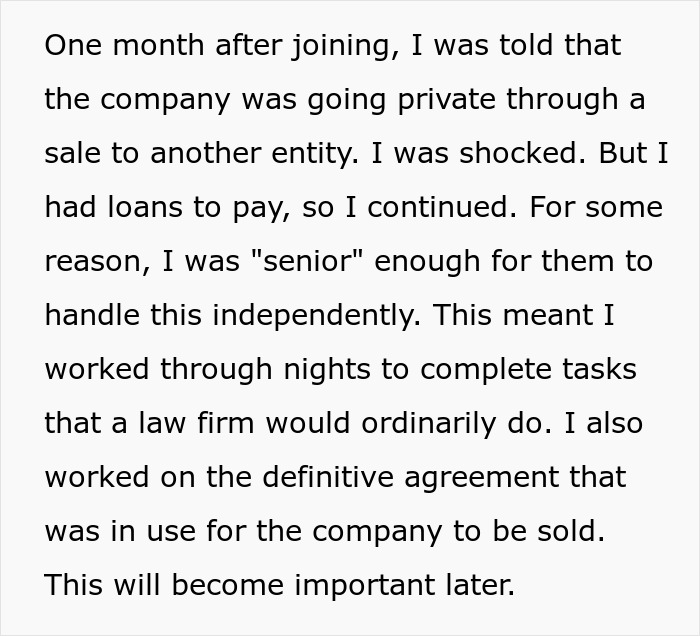
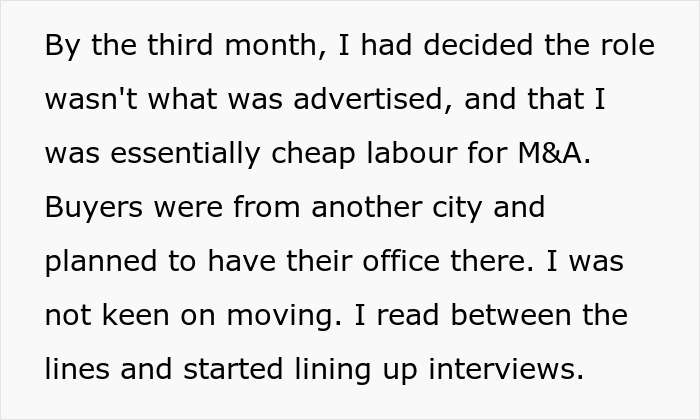
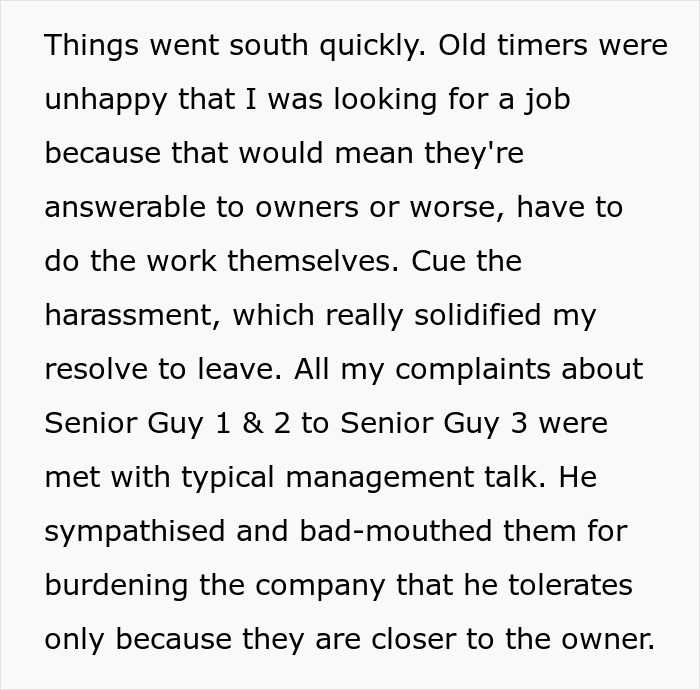


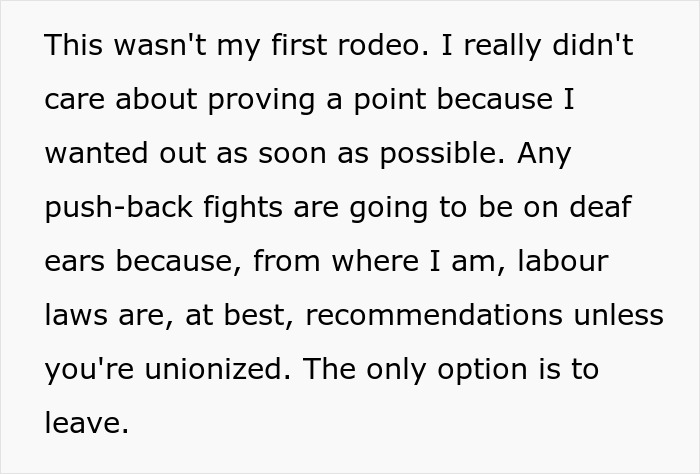

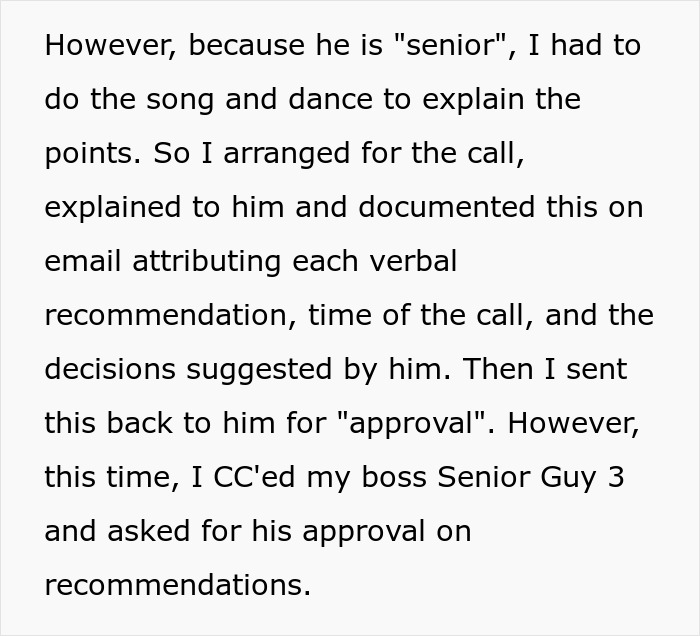



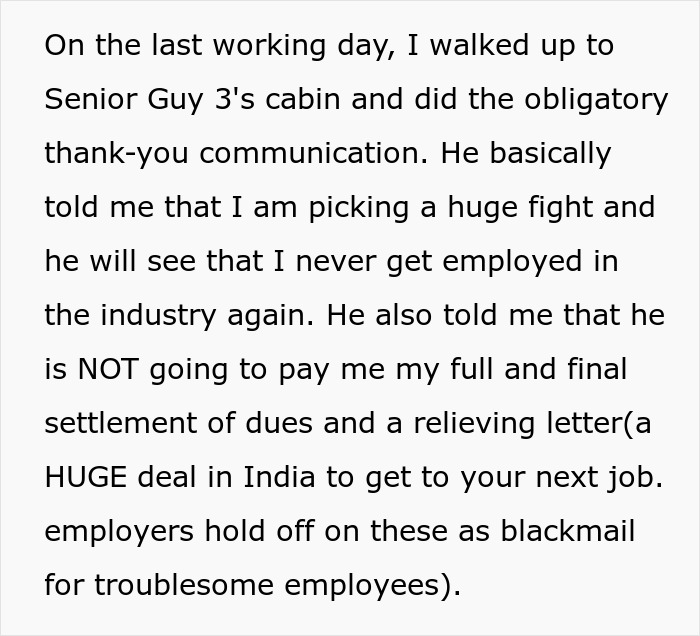
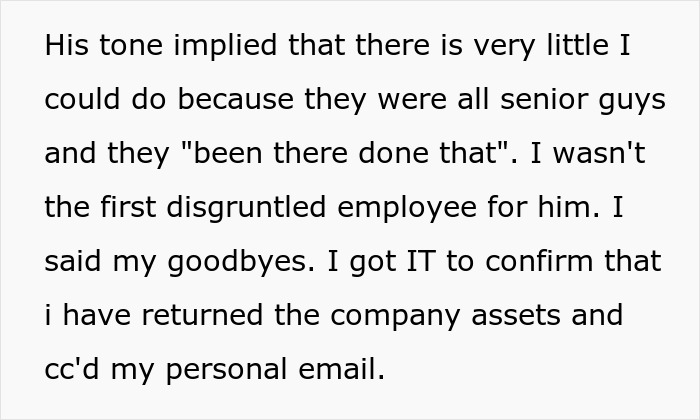


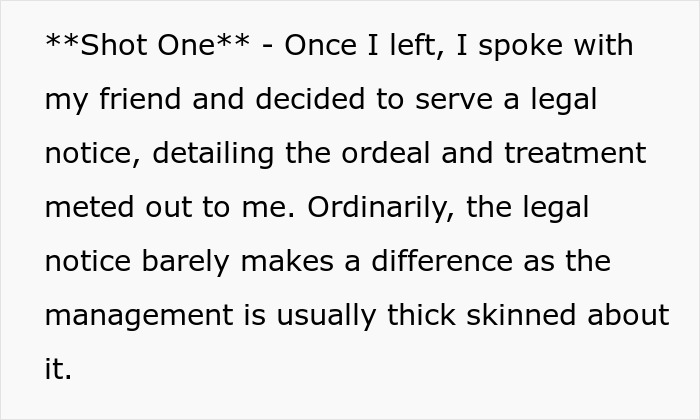
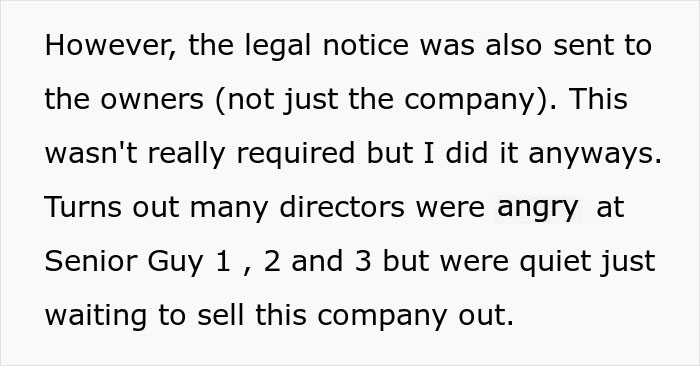
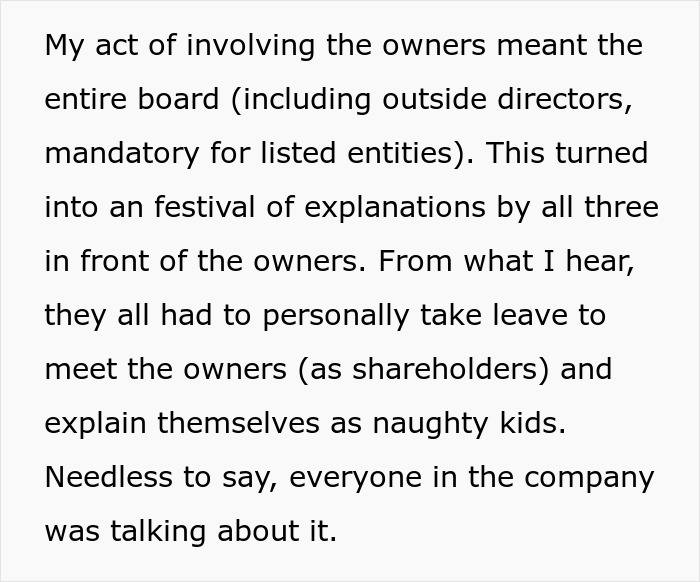
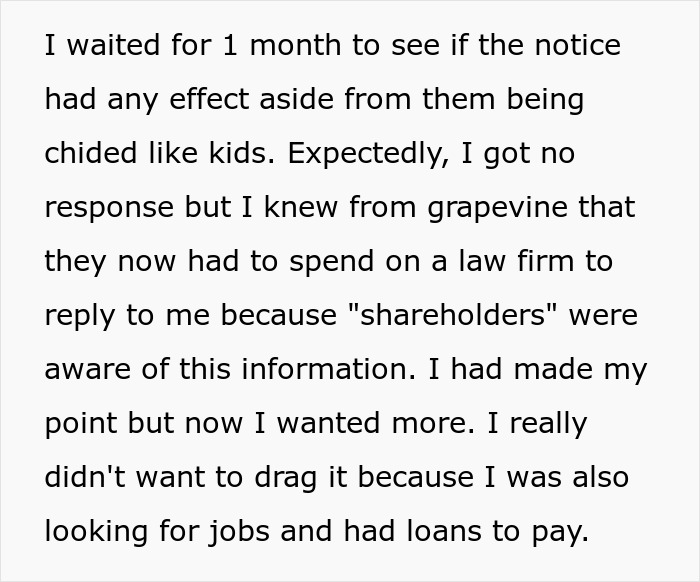
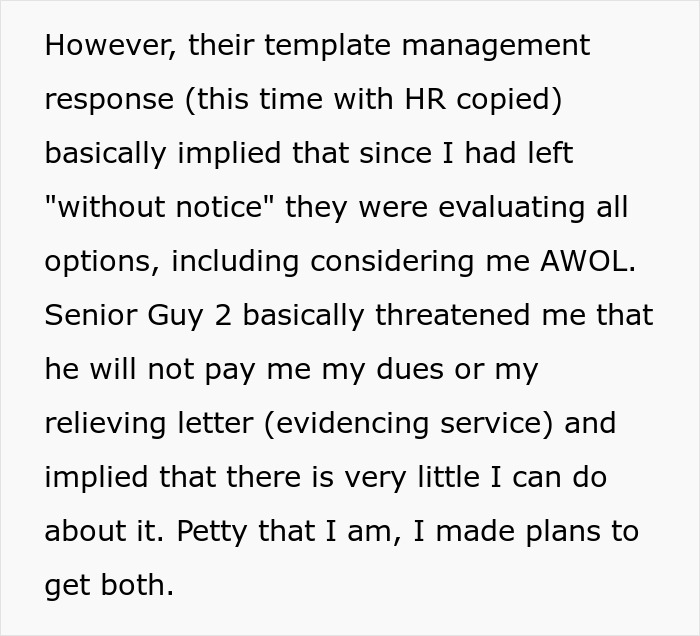

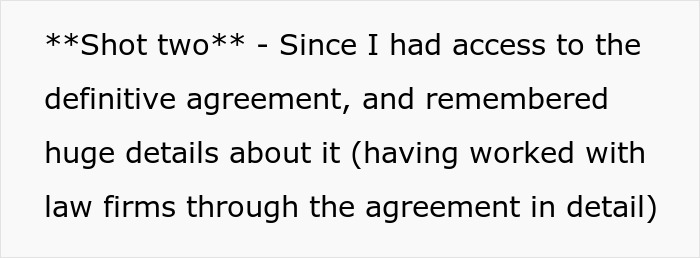
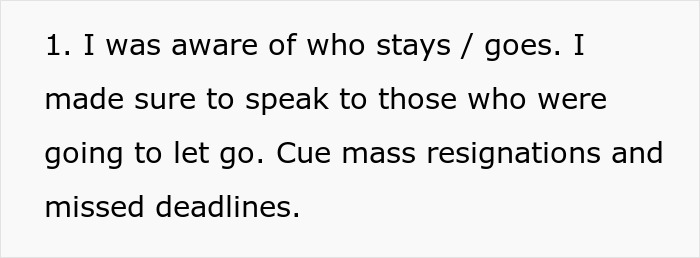
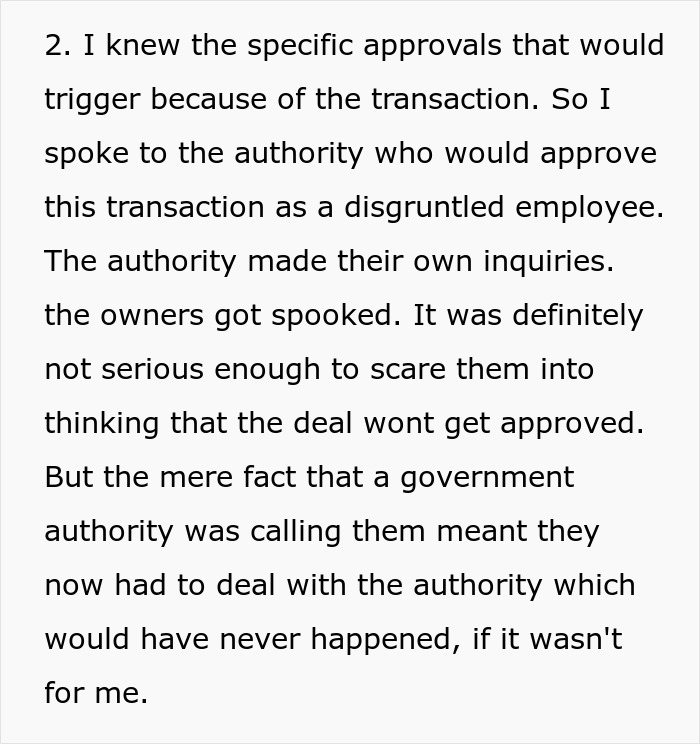



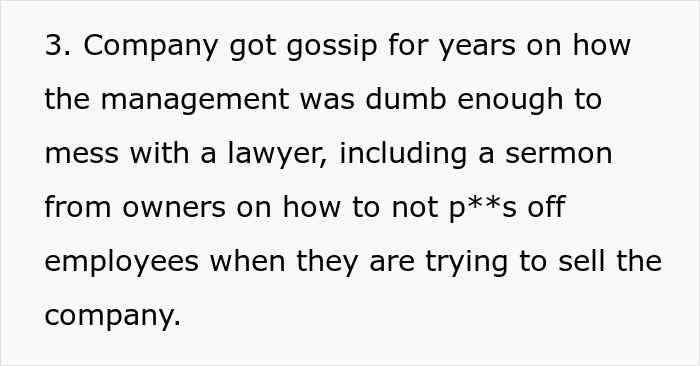


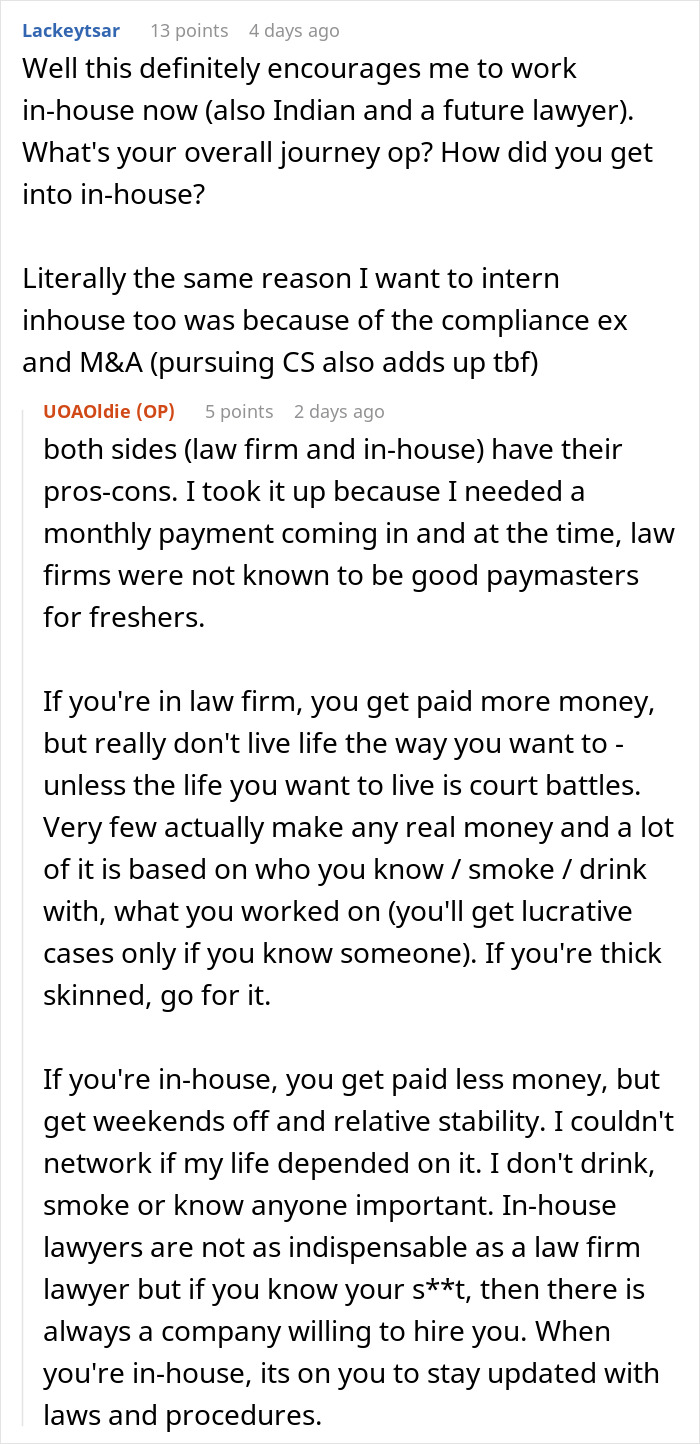
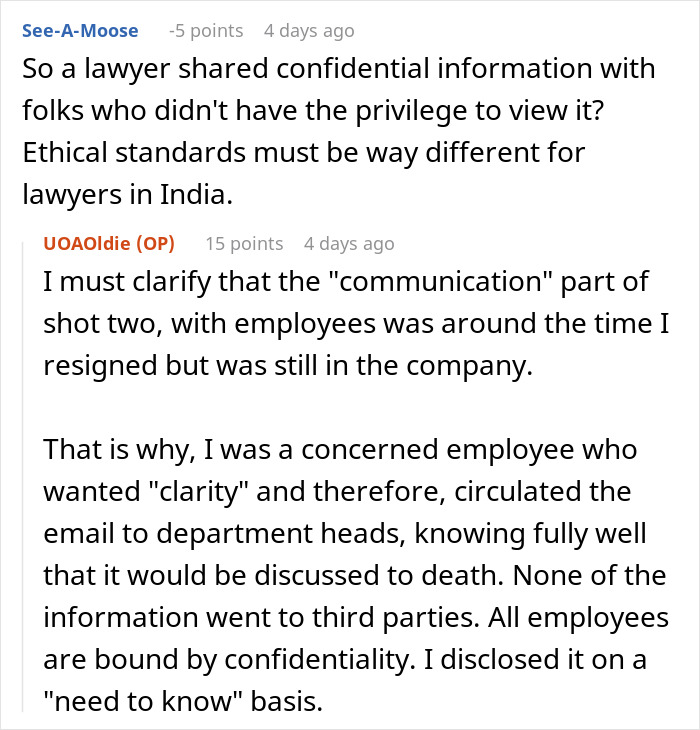
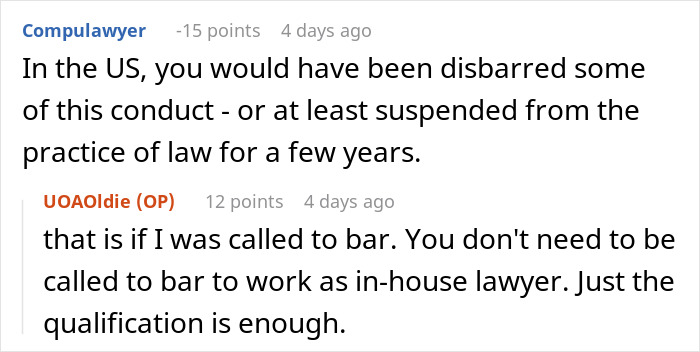


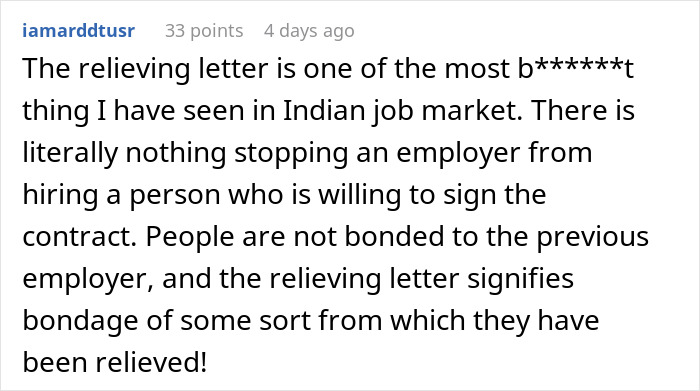
















































32
11